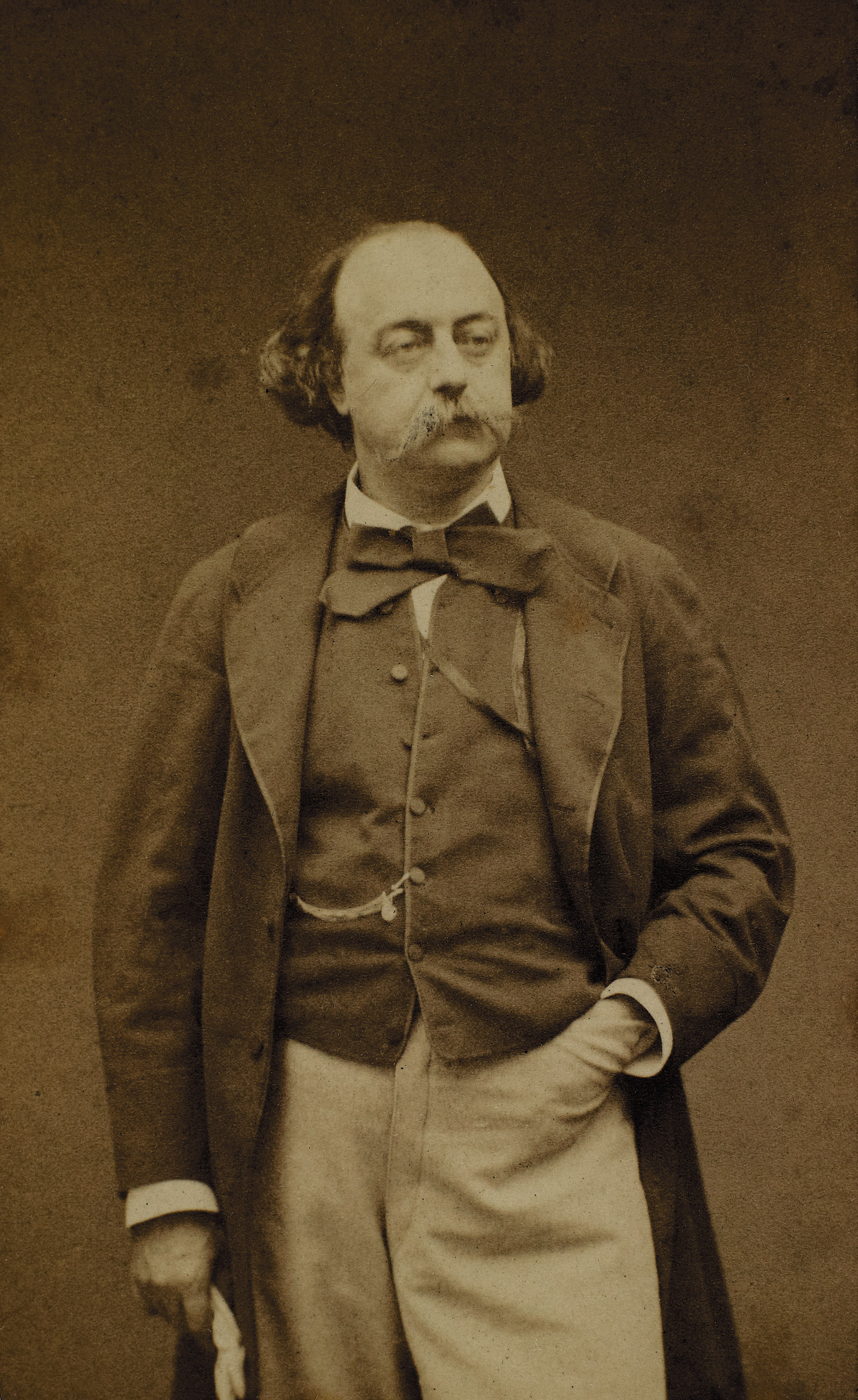

Queer Places:
Musée Flaubert d'Histoire de la Médecine, 51 Rue de Lecat, 76000 Rouen
Cimitière Monumental de Rouen, Rue du Mesnil Gremichon, 76000 Rouen
 Gustave
Flaubert (12 December 1821 – 8 May 1880) was a French novelist. Highly
influential, he has been considered the leading exponent of literary realism
in his country. He is known especially for his debut novel Madame Bovary
(1857), his Correspondence, and his scrupulous devotion to his style
and aesthetics. The celebrated short story writer Guy de Maupassant was a
protégé of Flaubert.
Gustave
Flaubert (12 December 1821 – 8 May 1880) was a French novelist. Highly
influential, he has been considered the leading exponent of literary realism
in his country. He is known especially for his debut novel Madame Bovary
(1857), his Correspondence, and his scrupulous devotion to his style
and aesthetics. The celebrated short story writer Guy de Maupassant was a
protégé of Flaubert.
From 1846 to 1854, Flaubert had a relationship with the poet Louise Colet; his letters to her have survived. After leaving Paris, he returned to Croisset, near the Seine, close to Rouen, and lived there for the rest of his life. He did however make occasional visits to Paris and England, where he apparently had a mistress.
Politically, Flaubert described himself as a "romantic and liberal old dunce" (vieille ganache romantique et libérale),[4] an "enraged liberal" (libéral enragé), a hater of all despotism, and someone who celebrated every protest of the individual against power and monopolies.[5][6]
With his lifelong friend Maxime Du Camp, he travelled in Brittany in 1846. In 1849–50 he went on a long journey to the Middle East, visiting Greece and Egypt. In Beirut he contracted syphilis. He spent five weeks in Istanbul in 1850. He visited Carthage in 1858 to conduct research for his novel Salammbô.
Flaubert never married and never had children. His reason for not having children is revealed in a letter he sent to Coulet, dated December 11, 1852. In it he revealed that he was opposed to childbirth, saying he would "transmit to no one the aggravations and the disgrace of existence."
Flaubert was very open about his sexual activities with prostitutes in his writings on his travels. He suspected that a chancre on his penis was from a Maronite or a Turkish girl.[7] He also engaged in intercourse with male prostitutes in Beirut and Egypt; in one of his letters, he describes a "pockmarked young rascal wearing a white turban".[8][9]
According to his biographer Émile Faguet, his affair with Louise Colet was his only serious romantic relationship.[10]
Flaubert was a tireless worker and often complained in his letters to friends about the strenuous nature of his work. He was close to his niece, Caroline Commanville, and had a close friendship and correspondence with George Sand. He occasionally visited Parisian acquaintances, including Émile Zola, Alphonse Daudet, Ivan Turgenev, and Edmond and Jules de Goncourt.
The 1870s were a difficult time for Flaubert. Prussian soldiers occupied his house during the War of 1870, and his mother died in 1872. After her death, he fell into financial difficulty due to business failures on the part of his niece's husband. Flaubert suffered from venereal diseases most of his life. His health declined and he died at Croisset of a cerebral hemorrhage in 1880 at the age of 58. He was buried in the family vault in the cemetery of Rouen. A monument to him by Henri Chapu was unveiled at the museum of Rouen.
My published books: